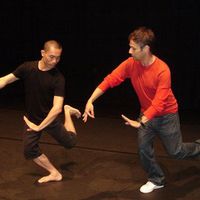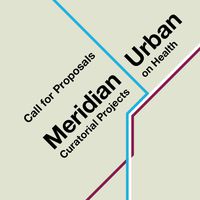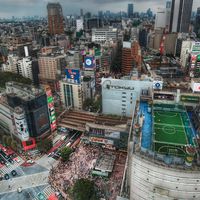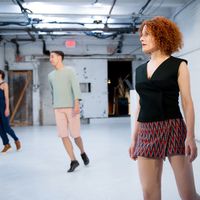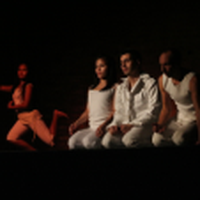Dialogue with Asia in Berlin
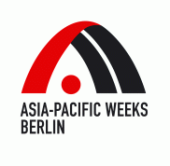
 The Asia-Pacific Weeks in Berlin, 2009
The Asia-Pacific Weeks in Berlin, 2009 From the 7 to the 18 of October, the Asia-Pacific Weeks 2009 (APW) successfully hosted more than 150 parallel events in business, science, culture and society at the different spots in the city. According to the Governing Mayor of Berlin, Klaus Wowerite in a brief address at the opening of this biennale event, “the plan is for everyone to come back full of ideas”. The experience gathered by thousands of scientists, executives and artists from all over Europe, Asia and the Pacific region, who came together in Berlin offered an opening for multiple ideas for future cooperation.
Under the heading “Asia-Pacific: Partner for a Common Future”, APW followed an extensive programming focused on the themes of mobility and energy. Prof. Barbara Kisseler, Permanent Secretary, Head of the Senate Chancellery articulates, “We, here in Berlin, need this dialogue with Asia to develop our own perspective for economic and demographic change. Asia Pacific as a Partner for a Common Future will be the theme in the next 20-30 years in developing valid relations. There are many people in Berlin interested in Asian culture. The Asia-Pacific Weeks is a sensitive way of explaining Asia.”
APW has been an active advocate in arousing curiosity and facilitating concrete cooperation amongst different players and institutions such as governmental bodies, companies, museums, cultural organizations, universities, foundations and non-governmental organisations from Asia and Europe. The Senate Chancellery, Berlin Partners GmBH, Asia-Pacific Forum Berlin and the House of World Cultures are the four key collaborators that have worked towards the continued development of APW over the years.
The Asia-Pacific Weeks introduced the concept of the country focus in its early beginnings with Japan as the focus in 1999, followed by China in 2001, India in 2003, and Korea in 2005. Since 2007, the APW has since adapted a thematic approach to broaden the dialogue and in bridging cultures. This offered another take on APW’s move towards dialoguing with Asia.
The seventh APW witnessed the enlargement of the cultural programmes with new high-profile partners like the National Gallery at Hamburger Bahnhof, RADIALSYSTEM V, and the theater Hebbel am Ufer hosting Asia focused artistic events. Among the cultural highlights were the performing-arts festival "Tokyo-Shibuya: The Next Generation" and the exhibition "Paul Pfeiffer - The Saints." Several exhibitions will remain open to the public even after the APW, including Tadashi Kawamata's exhibition "Berlin Tree Houses" and "What Makes India Urban?"
The AEDES Forum für zeitgenössische Architektur, the Deutsch-Japanische Gesellschaft, NEXT – Interkulturelle Projekte, Fashion Patrons, and the Neue Gesellschaft für Bildende Kunst (NGBK) presented other projects on urban development, fashion, young people’s art, and theater.
With such an extensive programme that covers a vast topic and diversified practices combining business, science and culture, one may think that perceptions might be clouded with terminologies or demarcation lines that potentially endangers the further definition of identity, roots, associations, ideas, practices, beliefs, etc. APW takes a step forward in presenting culture beyond staging of performances or exhibitions and instead intrumentalising a communication channel directed towards individuals whether they are businessmen, scientists, academics or artists.
The conversation with the co-organisers of APW: Rita Feid (Managing Director for the Asia-Pacific Forum Berlin) and Iris Vrabec (International Business Senior Manager for Asia, Berlin Partners) nonetheless gave a breather that there is a certain universality to the flow of thoughts when bringing people together. Regardless of the topic for discussion, the main focus remains with the people taking part in it.
Both were ecstatic over their observations and positive feedback gained from the participants of the business and science conference. “Every time someone goes on stage – we marvel at what he or she is going to say and how it is going to be said. For three straight days, people were glued to the conference and conversing in different languages: German, English, Chinese, Cambodia, Vietnamese, Filipino, etc. What’s striking is that each person has a different story to tell,” recants Vrabec with full enthusiasm.
The two who played as the engine behind the scenes take pride in the positive atmosphere and fluid dialogue that emanated in during the meetings. Vrabec says, “We put together people who normally would not meet and sit together.” And like any venture for cooperation “It’s very important for people to meet, to build trust and understanding.”
To summarise the dialogue, Vrabec asserts, “ this is one world and we should show the variety of people who live in it.” Reid, on the other hand, poignantly ends the dialogue by stating, “We are not rivals. We are partners.”
The question of how has the Asia-Pacific Weeks contributed to the understanding of Asia in Berlin or in Europe at large in the past years will be answered through an on-going dialogue, as Berlin maintains its position as the gateway to Asia.
The next Asia-Pacific Weeks is planned for Autumn 2011 with a theme on Water, Food and Health.
About the Writer:
Vanini Belarmino is the contributor for Performing Arts Asia for culture360.org. A Berlin-based producer and curator specialising in interdisciplinary exchange and cross-border collaborations, she is the Founder and Managing Director of Belarmino&Partners, an international project management and promotions consultancy for arts and culture.
Similar content
01 Dec 2009
07 Nov 2009
deadline
17 Sep 2010
from - to
05 Jun 2013 - 14 Jun 2013


